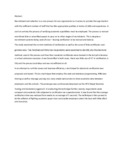E-verification-A case of academic testimonials
Abstract
Recruitment and selection is a core process for any organization as it serves to provide the organisation
with the sufficient number of staff that has the appropriate qualities in terms of skills and experience. In
such an activity the process of verifying academic capabilities must be employed. The process is manual
and allows fake or unverified papers to pass on to other stages of recruitment. This is despite e-recruitment
systems being used all over – leaving verification to be manual and tedious.
The study examined the current methods of verification as well as the score of fake certificates over
genuine ones. Two hundred and thirty two respondents were examined to identify also the electronic
methods used in the process and how their academic certificates were treated in the last job interview or
school admission sessions. It was found that in both cases, there was little use of ICT in verification (<
5%) and the process took days and was not efficient at all.
In an attempt to curb the issues and improve efficiency, a technique for electronic verification was
proposed and tested. This is a technique that employs the web and database programming, XML data
sharing as well as message passing via a very simple web service to share academic data between
employers and the schools. The prototype was continuously improved via the RITE (Rapid Iterative
Testing and Evaluation) approach. In evaluating the technique further, twenty respondents were surveyed
and academic info subjected to verification via a questionnaire. It was found that the average verification
time was reduced from weeks to an average of 5 seconds. The technique is then poised to be the solution
of fighting academic paper vices and enable employers select the best with little effort and resources.
Publisher
University of Nairobi

